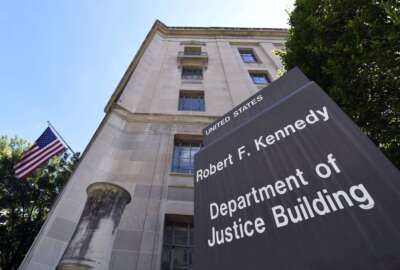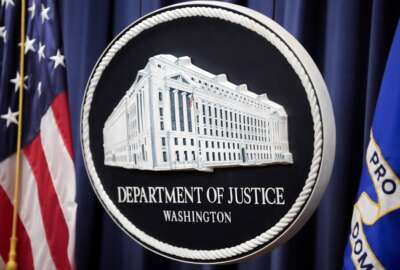McCain again makes his case to increase DoD’s cyber role
The Arizona senator sent the third in a series of letters to Gen. Keith Alexander trying to explain why DoD, not DHS, should be in charge of defending critical ...
Sen. John McCain (R-Ariz.) once again is trying to convince the nation’s highest ranking general in charge of cybersecurity that the Defense Department should protect the nation and its critical infrastructure from cyber attacks.
McCain responded to Gen. Keith Alexander’s April letter, which was in response to the senator’s March 29 letter, about concerns over the competing cybersecurity bills going through Congress. Alexander leads the U.S. Cyber Command and is the director of the National Security Agency.
“In previous statements, you have said that ‘If the DoD is to defend the nation against cyber attacks originating from outside the United States, it must be able to see those attacks in real time.’ To be clear, no piece of cybersecurity legislation before either body of Congress authorizes surveillance, government monitoring or Internet militarization. However, your statement infers a premium should be placed on speed and rapidity of response. I support this notion and therefore fail to see how building additional layers of bureaucracy is consistent with this position or would result in better cybersecurity.” 
McCain said this approach would erect “walls around information” that needs to be shared.
He also again tried to convince Alexander that having DHS work with critical infrastructure providers to create minimum standards is burdensome.
“It is hardly a choice when the options are to either comply with the DHS regulations or face civil penalties,” McCain wrote. “These regulations or standards would have the effect of diverting resources from actual cybersecurity towards compliance with government mandates. These mandates would provide a false sense of security.”
McCain asked Alexander to support his cyber bill, the Secure IT of 2012. He said it avoids creating “burdensome regulations” for critical infrastructure owners and operators, and increases the speed at which the government and industry can respond to cyber threats.
“Our odds are much more favorable when we leverage all assets and expertise within the federal government and the private sector to protect our interests and combat against those who seek to harm us,” McCain said. “Rather than empowering those with the actual capabilities to defend the homeland from foreign threats, the administration is supporting a policy, which elevates DHS as a regulator and an information broker, at the expense of improved national security and private sector flexibility.”
This story is part of Federal News Radio’s daily Cybersecurity Update. For more cybersecurity news, click here.
RELATED STORIES:
DoD using cyber teams like aircraft – for offense and defense
GOP cyber bill takes hands-off approach to industry
Senate cyber bill faces bumpy road ahead
Copyright © 2024 Federal News Network. All rights reserved. This website is not intended for users located within the European Economic Area.
Jason Miller is executive editor of Federal News Network and directs news coverage on the people, policy and programs of the federal government.
Follow @jmillerWFED






